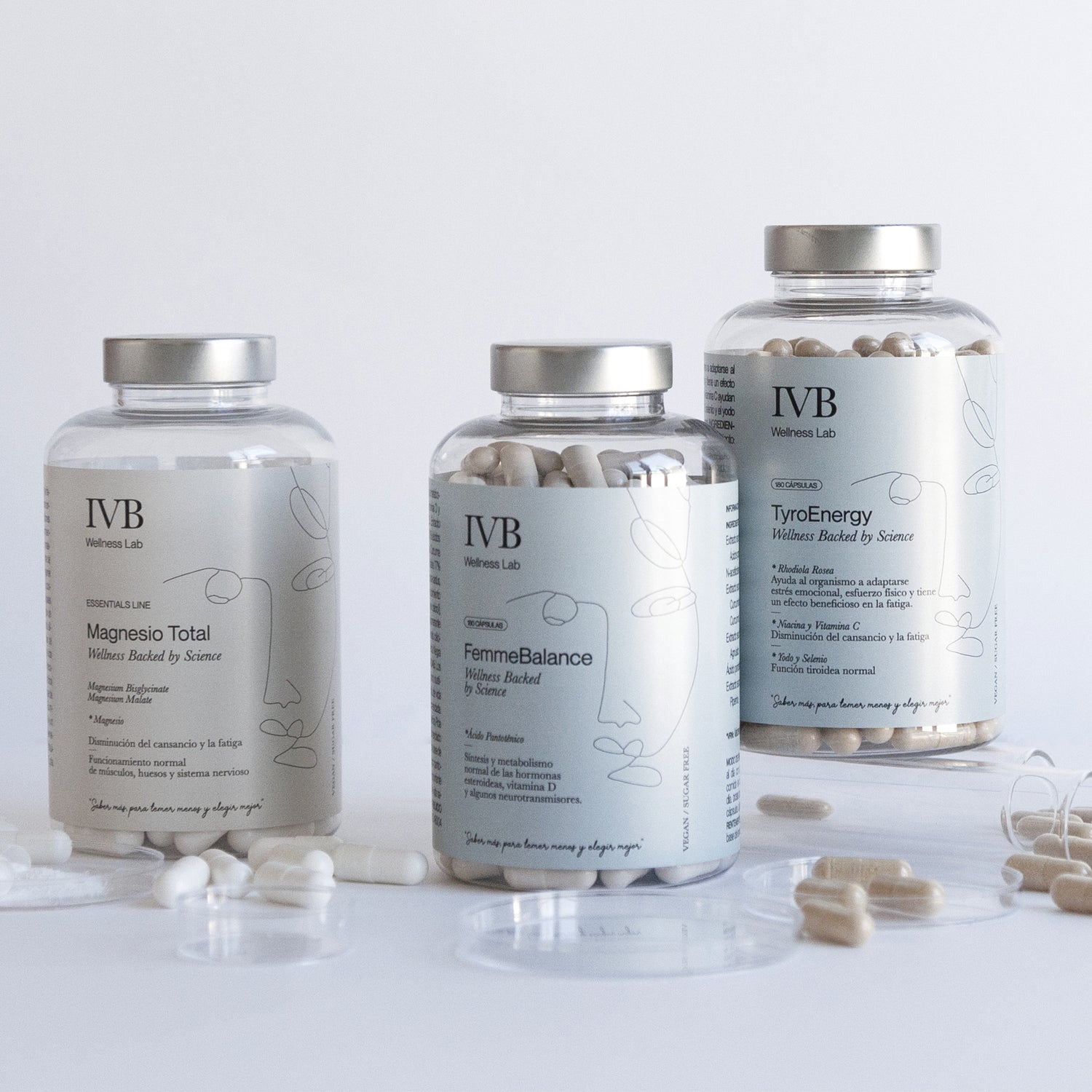It is only found naturally infoods of animal origin(meat, fish, eggs, dairy) and requiresintrinsic factorgastric for intestinal absorption. Its deficiency is common in older adults, vegans, and patients with gastrointestinal disorders.
How does it work?
DNA synthesis and methylation
Vitamin B12 isclueso that our cells cancopycorrectly thegenetic material(DNA) andproduce new healthy cells, since it participates in processes that activate or deactivate genes and help build the “pieces” of DNA.
Formation of red blood cells
Facilitates thematuration of erythrocytesin the bone marrow. Its deficiency causes megaloblastic anemia due to disruption in DNA synthesis.
Neurological function
It intervenes in the synthesis of myelin, a substance that coats and protects nerve fibers. Prolonged deficiency causes peripheral neuropathies, sensory loss, and cognitive impairment.
Energy metabolism
Participates in mitochondrial reactionsthat convert fatty acids and amino acids into energy.
Neurological function
- Participate in themyelin synthesis, a substance that covers the nerves. Its deficiency can cause neuropathies.
- Energy metabolism.
Intervenes in thetransformation of fatty acids and amino acidsin energy at the mitochondrial level.
Benefits according to scientific evidence
Prevention of megaloblastic anemia
Green and his team in 2017 showed in a clinical review thatVitamin B12 deficiency is one of the main causes of megaloblastic anemia, especially in older adults. Oral supplementation (1,000 µg/day) was effective in normalizing hemoglobin levels.
Improving cognitive function in older adults
Smith and colleagues conducted a clinical trial in 2010 with 271 elderly patients with mild cognitive impairment. Treatment with vitamin B12 (along with folic acid and B6)reduced brain atrophy and slowed cognitive decline.
Reduction of homocysteine and cardiovascular risk
Huang et al. (2019) developed a meta-analysis with more than 34 studies, concluding that vitamin B12 supplementationreduces homocysteine levels, an independent risk factor for cardiovascular disease.
Support for vegan and vegetarian diets
Elmadfa and Singer in 2009 highlighted that people who follow strict vegetarian or vegan diets have a higher risk of deficiency.Supplementation is essential in these groupsto prevent neurological and hematological symptoms.
Pregnancy and fetal development
Nie and his team in a recent 2025 study published a review confirming that adequate maternal levels of B12, along with folate,reduce the risk of neural tube defects in the fetus, such as spina bifida, more effectively than folate alone.
Reversible neurological disorders
Lachner et al. (2012) reported cases of peripheral neuropathy and cognitive disordersreversible after treatment with vitamin B12 in patients with severe deficiency.
Available shapes
- Cyanocobalamin(synthetic, stable and common in supplements).
- Methylcobalamin and adenosylcobalamin(active forms, better utilized at the cellular level).
- Hydroxocobalamin(used intramuscularly, longer lasting).
Routes of administration
- Oral(tablets, sublingual).
Intramuscular injectable(in cases of malabsorption or severe deficiency).
Conclusions
Vitamin B12 isessentialfor numerous metabolic and neurological functions. Its deficiency can cause anemia, neurological damage, and cognitive impairments, and is more common in older adults, vegans, pregnant women, and people with gastrointestinal diseases.


La vitamina B12, también conocida como cobalamina, es una vitamina hidrosoluble esencial para el funcionamiento normal del cerebro.
La vitamina B12 también contribuye a la formación de glóbulos rojos y la síntesis de ADN.
Solo se encuentra de forma natural en alimentos de origen animal (carne, pescado, huevos, lácteos)




